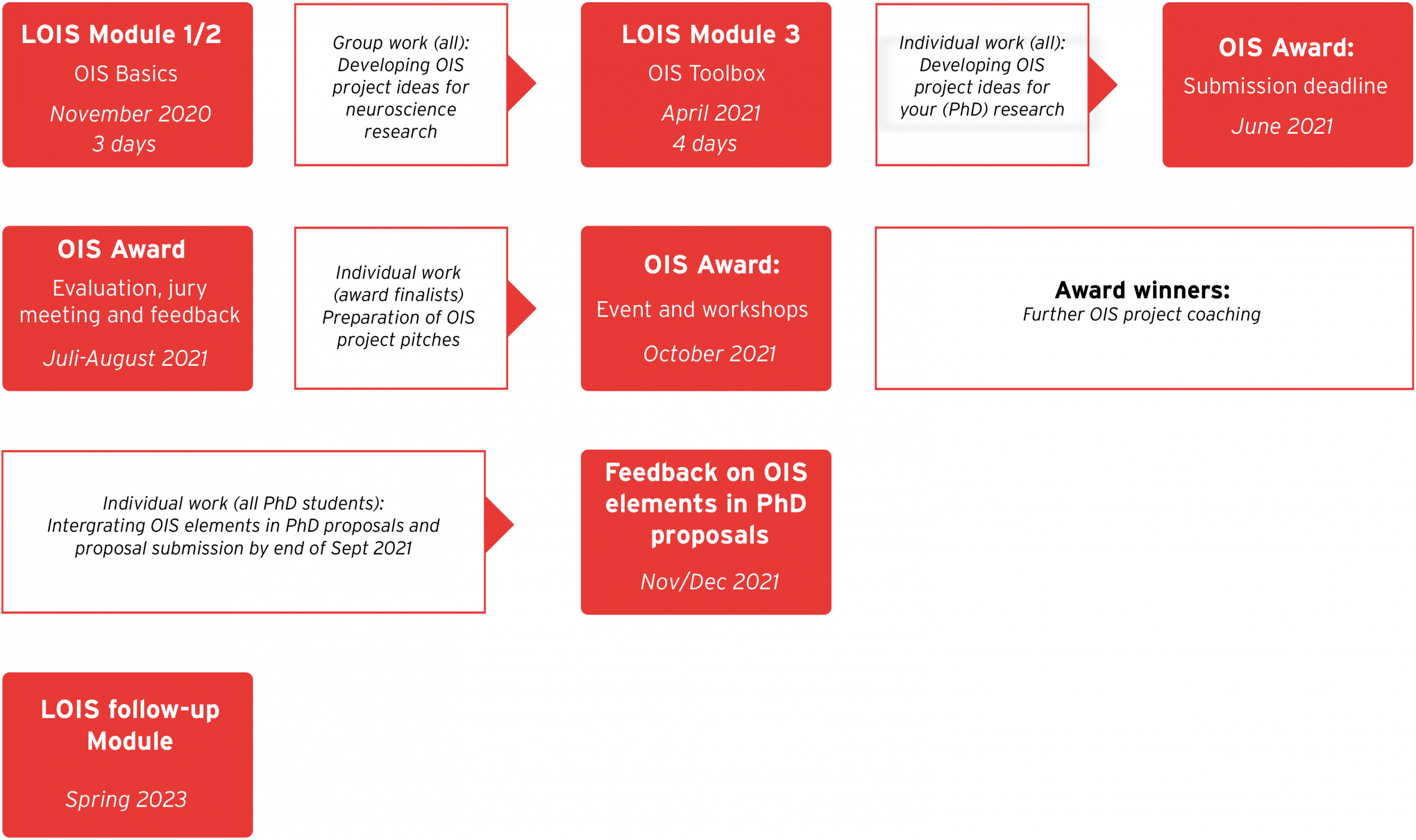The Lab for Open Innovation in Science was developed in close collaboration with the Open Innovation in Science Center of the Austrian Ludwig Boltzmann Gesellschaft. All modules (except module 1) are led by Professor Dr. Marion Poetz who is Associate Professor of Innovation Management at the Department of Strategy and Innovation at Copenhagen Business School (CBS), and Scientific Director of the Ludwig Boltzmann Gesellschaft’s Open Innovation in Science Center. Module 1 is given by Dr. Ulf Tölch, project leader Education, Training & Quality in Research at the QUEST Center for Transforming Biomedical Research.

Aim
The reproducibility of research methods and its results are important quality criteria in all research areas. In past years, many novel tools and technologies have been developed which allow for an open and comprehensive representation of the scientific process which exceeds the limiations of traditional journal articles. However, using these novel tools and technologies in a qualified and responsible manner requires knowledge and skills that are not normally taught in undergraduate or graduate degrees.
Content
- Preregistration and registered reports, biases in research
- Reproducible workflows
- Statistics and reproducibility
- Publishing (Open Access), Open Data and Open Materials
- Ethics of reproducible research
Learning objectives
By the end of the module, participants will have developed a sense for an open, transparent, and reproducible research workflow.
Aim
This module introduces participants to the concept of “Open Innovation in Science” (OIS) and its main underlying principles, models, processes and sources. Building on this basic insight, the module aims at developing an understanding of why, how and under which conditions open and collaborative approaches contribute to generating and disseminating new scientific insight. Participants will develop a solid foundation for discussing the transfer and application of Open Innovation principles and methods to the context of scientific research. They will furthermore receive instructions for developing first OIS project ideas which are going to be discussed and further developed in the course of the PhD LOIS program.
Content
- Basic concepts for discussing OIS
- OIS principles, models and processes
- Knowledge sources for OIS
- OIS cases along the entire process of generating and disseminating scientific insight
- Opportunities, risks and contingency factors related to OIS
- OIS project development basics
Learning objectives
By the end of the module participants will have developed the following:
Knowledge
• An understanding of the basic attributes of OIS
• An understanding of the antecedents, outcomes and contingencies of OIS
• An understanding of important challenges along the scientific research process and how these may be addressed by applying OIS principles and methods
Skills
• An ability to analyze important attributes of OIS in different contexts
• An ability to describe and develop OIS search and collaboration approaches
• An ability to evaluate and discuss OIS concepts and practices
• An ability to evaluate the applicability of OIS principles and methods for addressing scientific challenges
Competences
• An ability to integrate and synthesize different aspects of OIS
• An ability to reflect on the opportunities and limitations of OIS
• An ability to draft OIS project ideas
Aim
This OIS toolbox module will introduce participating PhD students to a selection of OIS strategies, methods and tools for addressing relevant challenges related to contemporary scientific research in general and PhD activities in particular. Considering the learning outcome from the previous modules, participants will present and discuss their initial OIS project ideas and develop a preliminary OIS toolbox for the field of Neuroscience along the entire process of generating novel scientific research and translating scientific insight into innovation. Furthermore, the module will introduce and guide participating PhD students to reflect upon their ideas for integrating OIS in their own PhD work, and start developing respective OIS project proposals, preparing them to submit their proposals to the OIS Award of the Einstein Center for Neurosciences Berlin.
Content
- Crowd science and citizen science
- Crowdfunding science
- Creating and capturing value with and from OIS
- OIS networks and platforms
- OIS incentives, motivation, scientific credit and career implications
- Science communication along the entire research process
- Science communication with non-academic stakeholders
- OIS project development and evaluation
Learning objectives
By the end of the module, participants will have developed the following:
Knowledge
- An understanding of key benefits, challenges, contingencies, and design parameters related to using crowdsourcing-, platform- and collaboration-based strategies, methods, and tools for facilitating the generation and dissemination of scientific research
- An understanding of basic parameters of communicating science along the entire research processes with a particular focus on communicating with non-academic stakeholders
- An understanding of antecedents and consequences of applying crowd- and collaboration-based approaches to generating and disseminating scientific research
Skills
- An ability to assess why (not) and how to open up scientific research processes and select qualified OIS strategies, methods, and tools in different stages of the research process
- An ability to design OIS projects
- An ability to evaluate OIS projects
Competences
- An ability to apply OIS strategies, methods, and tools in their own research and entrepreneurial projects
- An ability to consult other researchers on applying OIS strategies, methods, and tools in their research and innovation activities
- An ability to address barriers to OIS and become changemakers in their research and innovation ecosystems
A project submission for the Einstein Open Innovation in Science Award is a mandatory part of the OIS training. The requirements for a successful application you will find here.
The last module of the ECN Open Innovation training is tailored to the individual needs of the respective OIS projects, which are embedded in the PhD projects. It may contain individual capacities for Openness and Sharing.
